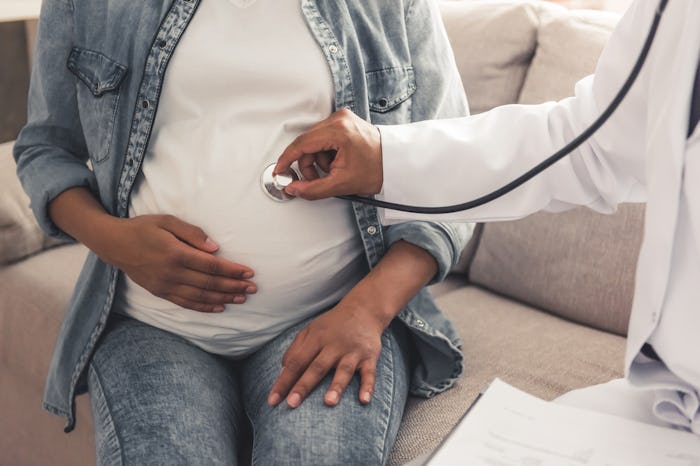Preparing for pregnancy can be a complex thing. But experts are recommending that women looking to get pregnant add something to that list: getting their health on track. Too many women are failing to address weight and nutrition issues before pregnancy, according to a recent study, and it could impact their health as well as the health of their child. Women looking to make positive changes in their lifestyle, such as eating healthier and exercising, should do so before pregnancy rather than during.
A recent study published in The Lancet medical journal reported high rates of obesity and poor nutrition in pregnant women. Rather than address these issues early on, researchers stated that the women were making efforts after already becoming pregnant. The study looked at women between the ages of 18 and 42, reporting that only 10 percent of those in Australia were eating a nutritious diet. Socioeconomic status and other factors made little difference, according to the authors.
Contributing author Gita Mishra of the Women's Health Australia Study told ABC News Australia that women are making positive changes like giving up drinking and smoking before pregnancy. However, they are not changing their eating habits or addressing weight issues — both of which she said put women at risk of pregnancy and birth complications.
Mishra told the University of Queensland newsroom that adding exercise and healthy eating before pregnancy reduces the risk of gestational diabetes:
Higher levels of physical activity before conception resulted in lowered risk of gestational diabetes. Also, we know from our own research that women who have a diet high in fruit, vegetables, legumes and nuts before conception have lower rates of gestational diabetes.
Obesity and poor nutrition in pregnant women isn't an issue unique to Australia. The U.S. Centers for Disease Control and Prevention report that 22.1 percent of American women giving birth are obese before they become pregnant. While obesity doesn't make it impossible for women to get pregnant — and certainly doesn't mean that they shouldn't — and have healthy babies, it does make everything a little bit more complicated.
Dr. Raul Artal of the American College of Obstetricians and Gynecologists told The Chicago Tribune that obesity can have a medley of negative impacts. "Obesity can adversely affect fertility, pregnancy, childbirth, postpartum recovery and the baby," she said. Additionally, obesity during pregnancy can increase a woman's chance of developing gestational diabetes, hypertension, and preeclampsia, as well as lead to long labor, labor interventions, miscarriage, hemorrhaging, and ultrasound test difficulties, according to the Tribune. While these effects can be managed, women should be aware of the risks.
Obesity can also impact fertility. Dr. Jeanne Conry, ACOG president and assistant physician in chief at The Permanente Medical Group in Roseville, California told Time that she recommends her patients make positive changes in their eating and exercise habits:
For a woman who’s been trying for a year, the last thing she wants to hear is to take another year off to lose weight. But if a woman walks into my office who’s been trying to get pregnant and she has a body mass index of 30 or over [more than 180 pounds for a 5’5” woman] and she’s having an irregular period, the first thing we’re going to do is discuss a healthy diet and exercise program.
Of course, pregnancy isn't always planned. In such cases, women can absolutely start integrating good habits into their lifestyles during pregnancy. According to Fit Pregnancy, the benefits of exercising and eating well during pregnancy "begin immediately and last your whole life." Making small changes, like swapping a bowl of ice cream for fresh fruit and adding a daily walk to your regular routine, can go a long way.
Mishra and her team are not looking to shame women with the results of their study. Instead, they are looking for improved education for women on the benefits of making positive lifestyle changes before pregnancy. “The message that everyone needs to hear, whether they are planning a pregnancy or not," she told the University of Queensland, "is that women who are active and eat more fruit and vegetables will have a much healthier pregnancy and baby." Helping women to better prepare for their pregnancies could be the key to reducing their risks.
Check out Romper's new video series, Bearing The Motherload, where disagreeing parents from different sides of an issue sit down with a mediator and talk about how to support (and not judge) each other’s parenting perspectives. New episodes air Mondays on Facebook.
